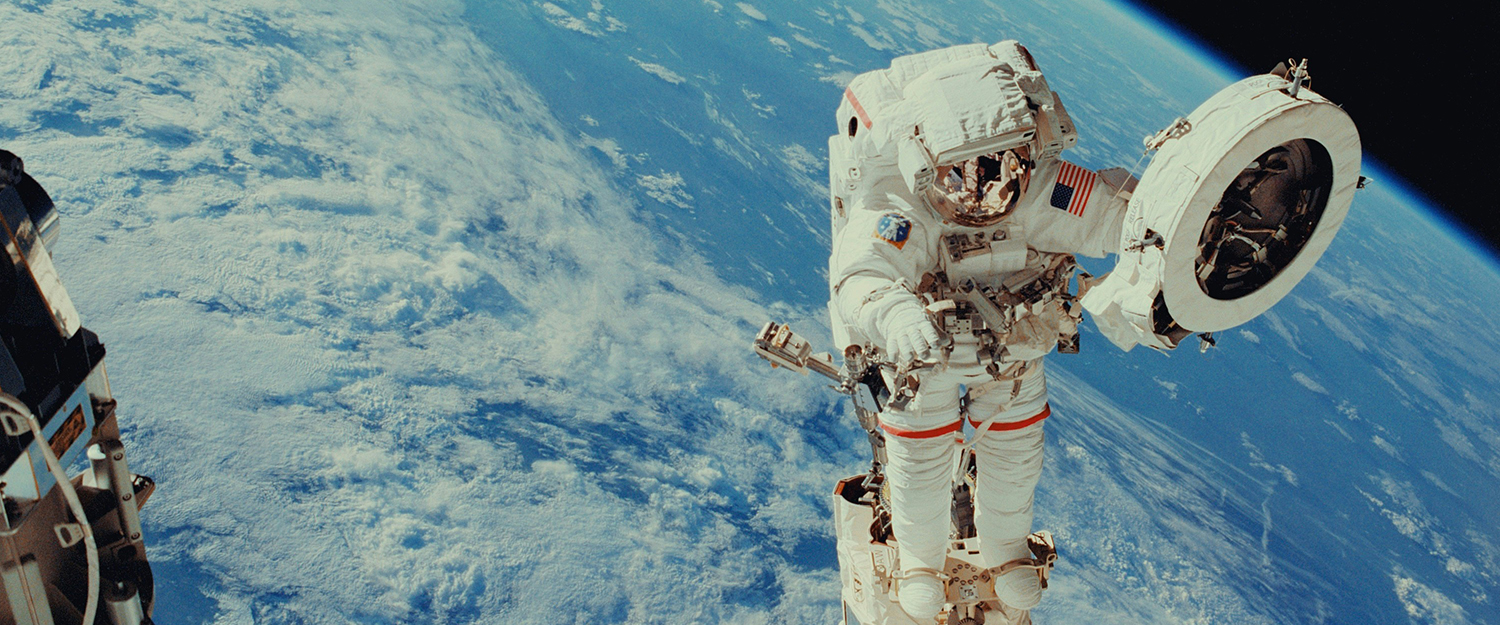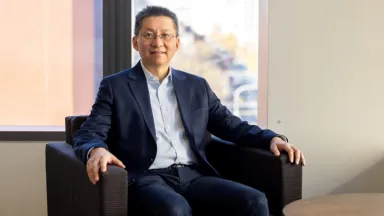
Capturing A Cold War-Era Project with Lessons for Business and Government Today
In an increasingly globalized world, how can international teams and organizations work together more effectively? And how can they overcome political and cultural differences in doing so? A historical case study explored by two LeBow researchers holds some intriguing answers.
In “Working With the ‘Enemy’: Supervised Space, Free Space and Cross-Border Collaboration Amid Geopolitical Rivalry,” professor and department head of management Dali Ma, PhD, and LeBow doctoral alumnus Thomas Fewer, PhD ’21, examine the Apollo-Soyuz Test Project (ASTP), a joint venture by the U.S. and Soviet Union space programs first initiated in 1972.
Their paper, co-authored with Diego M. Coraiola, PhD, of the Peter B. Gustavson School of Business at the University of Victoria and published in Organization Science, draws on historical accounts and documents published by NASA and the U.S. government, declassified documents from the United States Central Intelligence Agency (CIA), books written about the space programs from the American and Soviet perspectives, and newspaper and magazine articles written before and during the ASTP.
In probing both the origins and successes of the ASTP, they looked at accounts of where the two teams of scientists worked and interacted. The authors identify these settings as “free space” — protected environments where individuals can experiment with new ideas, challenge conventional practices and share knowledge without fear of interference or retribution — in contrast to “organizational space,” set up by the countries’ respective governments with extensive monitoring of individuals’ activities and interactions.
Ma has long been drawn to the social dynamics of the business environment, including, in a previous paper, studying the social networks of individuals who had recently been laid off. That study showed those who had well-developed social networks were more likely to start their own businesses, research showed, because those networks provided more “identity support.”
In the joint American-Soviet project, identity support for individuals on both sides came through their interactions in “free space.”
“In this atmosphere of intense geopolitical competition, ideological rivalry and conflict, the supervised space set up by organizations gives individuals clear guidelines — and it’s awkward,” Ma says. “When they move to free space, they talk about family and their work, and the US and Soviet astronauts notice they are more similar.”
“In scientific collaborations, small things can help people come together,” he adds. “Because space exploration is a risky endeavor, trust becomes even more important.”
Co-author Fewer first encountered and wrote about the ASTP during an organizational theory seminar and later wrote a paper on it for his doctoral candidacy exam. Having worked in the aerospace and defense industries before pursuing a career in academia, Fewer says he was familiar with the technical need for secrecy involved in military projects.
“I thought [ASTP] was a good story and that it made for an interesting paper, but it has a lot to teach us about working and collaboration in today’s atmosphere of political polarization,” he says.
Now VP of talent partnerships and programming with the Washington, DC-based nonprofit NobleReach Foundation, Fewer works to promote increased collaboration between private industry and government and to separate politics from the workings of government among students entering the workforce.
“We’re seeing polarization everywhere, but we’re also seeing skilled, entrepreneurial young people who are driven more by purpose than by politics,” he says. “It’s clear there’s a need for spaces like these where people with different views can come together.”
As the co-authors noted in a summary of paper, their research “provides a blueprint for how organizations can maintain crucial international collaborations even as geopolitical tensions rise between nations.”
As an example for how to approach a host of current-day global challenges, such as climate change, public health and the growth of artificial intelligence technologies, Fewer feels ASTP makes for a compelling case study.
“It can help people feel optimistic about where we can go,” both as a country and a society.



